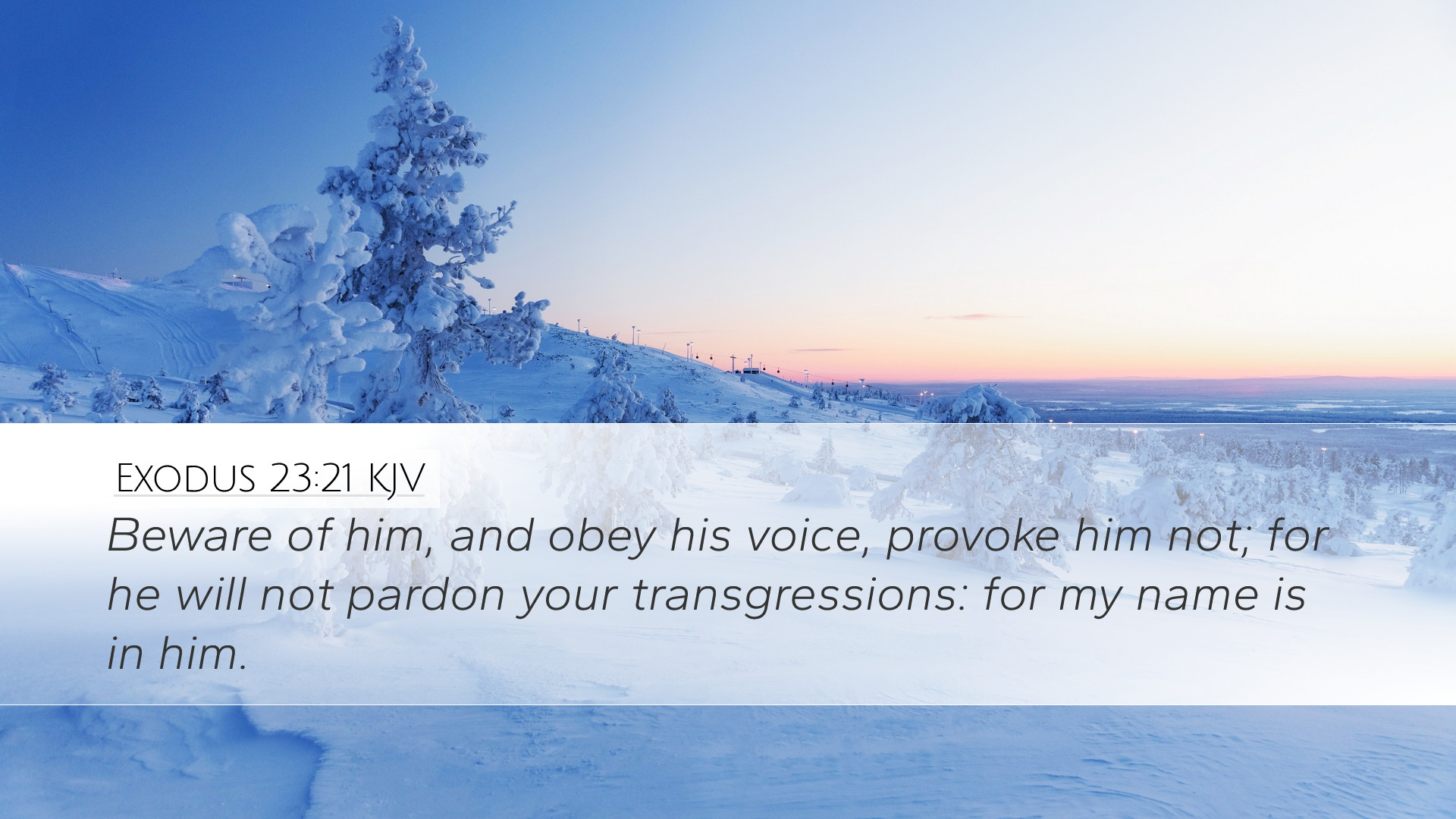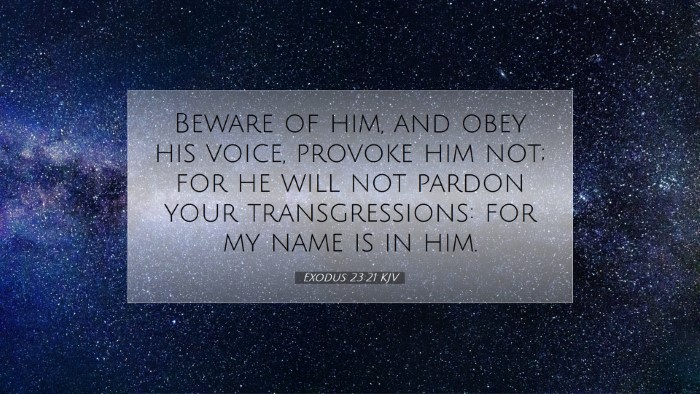Commentary on Exodus 23:21
Exodus 23:21 states, "Beware of him, and obey his voice; provoke him not; for he will not pardon your transgressions: for my name is in him." This verse holds deep significance as it emphasizes the importance of reverence and obedience to God's appointed messenger.
Contextual Overview
This directive is situated within the broader context of Israel's journey towards the Promised Land. As God prepares His people for this new chapter, He appoints a messenger, which many interpret to represent the angel of the Lord. Understanding the historical and theological implications of this passage lays a strong foundation for our meditation.
The Importance of Obedience
The command to "beware" and "obey" reflects a significant tenet within Biblical teaching. The term "beware" indicates a call to vigilance and awareness. According to Matthew Henry, this summons to vigilance suggests that one should not treat the words of God lightly. It demands an earnest consideration of the weight of divine authority encapsulated in God's messenger.
Henry's Insights on Obedience
Henry articulates that obedience involves a careful listening to the voice of the Lord. Not merely a passive acknowledgment, genuine obedience requires both heart and action. The implications for contemporary believers are profound: to remain vigilant in the face of distraction, to readily accept God's authority through His Word, and to engage proactively in faith practices.
Barnes' Perspective on Provoke Him Not
Albert Barnes emphasizes the phrase "provoke him not." This introduces the concept of divine justice intertwined with mercy. The reference to God's inability to pardon transgressions underscores the seriousness of the matter—rebellion can lead to spiritual destitution. Barnes discusses historical contexts of judgment as seen throughout the Old Testament, where the disregard for God's commands leads to dire consequences.
The Angel of the Lord
The identity of the messenger, often interpreted as the Angel of the Lord, invites significant theological discussion. Adam Clarke draws attention to the notion that the presence of God's name within the angel signifies divine authority. Clarke posits that this name embodies the essence of God’s character, representing His moral and righteous nature.
Clarke's Emphasis on Divine Presence
Clarke goes further to emphasize that the angel, as a representation of God's presence, becomes an intermediary between God and His people. It is crucial for believers to recognize the sacredness of such encounters. Throughout Scripture, the reverence accorded to God's messengers affirms God's sovereign order and ultimate authority.
Theological Implications
This verse serves not only as guidance for ancient Israel but resonates with modern-day believers. The call to obedience remains pertinent, reflecting how one’s relationship with God is forged through submission and surrender to His will. This raises several theological inquiries relevant to pastors and students alike:
- How do we discern the voice of God in contemporary practice?
- What does it mean to provoke God?
- How does the recognition of the divine in God’s messengers affect our faith journey?
Practical Applications
Exodus 23:21 calls for practical responses to honor God. It invites pastors to communicate the weight of divine authority in their teachings, prompting congregations to reflect on their own obedience. Students and theologians can delve deeper into homiletics and biblical exegesis to better convey these truths.
Encouraging Discernment
As believers engage with the Scriptures, there comes a need for discernment. The warning to "beware" encapsulates this notion, reminding congregations to be alert to teachings that deviate from the core tenets of faith. It carries a call to not just hear the Word, but to actively engage in understanding and living it out.
Conclusion
In conclusion, Exodus 23:21 serves as a critical reminder of the gravity of God’s commands and the necessity for responsive obedience. As reflected upon by theologians like Henry, Barnes, and Clarke, the layers of meaning within this passage challenge readers to engage deeper with their faith, remaining vigilant in their walk with God.


